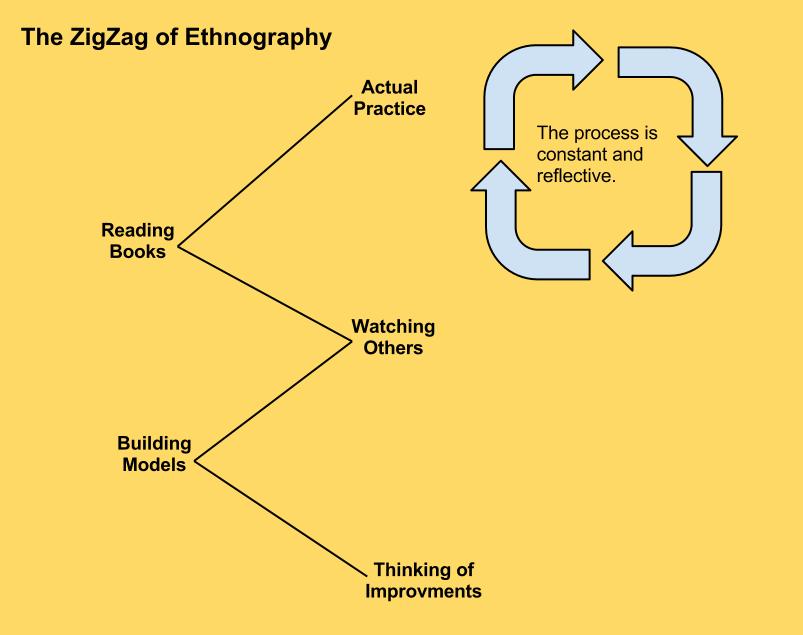
In gearing up for this semester’s classwork, which starts this week, I read a chapter from Shirley Brice Heath and Brian Street’s On Ethnography.
Nothing too complex, the chapter serves as a refresher at the start of my second Qualitative Methods course to help remind us what we started learning last semester. I appreciated the reminder of the definition of ethnography:
…a theory-building enterprise constructed through detailed systematic observing, recording, and analyzing of human behavior in specific spaces and interactions.
The chapter also reminded me of a question I struggled quietly with throughout last semester’s work. Consistently, Heath and Street refer to the importance of researching those who have theorized and done the work before and letting that inform the work to be done. As I study third spaces, I should read everything I can about those who studied third spaces before me, the logic goes.
It strikes me that this approach precludes novel understandings of the spaces, people and interactions being studied. Yes, I walk into any research site with certain predispositions and understandings, but doesn’t taking in the predispositions and understandings of others further lead me to a set of understandings of the subjects of my study?
Many times last semester (and I suspect it will continue this semester), I wanted to argue against field notes, data coding, and the other established methods of the ethnographer and ask simply to walk into the space and see what I could figure out and what processes I found myself creating/adopting.
The closest thing I can relate it to is teaching the 5-paragraph essay. “This is how writers write,” was the implication when I would dust off the tired tool, “So, it will be how you write.” The thing was, that’s not how writers write, and I knew it. Later in my practice, when I’d stopped teaching the 5-paragraph essays, I realized the work my students created was much more inventive, much more interesting, and much more labor-intensive when we focused on the mindsets of writers and the questions they asked. From there, I could open up the coursework for students to meet the tasks at hand on their own terms, without restriction of “this is how it’s supposed to look.
I wonder if there is space inside qualitative research – ethnography in particular – to take the same tack.
Click here to see my annotated copy of the chapter.